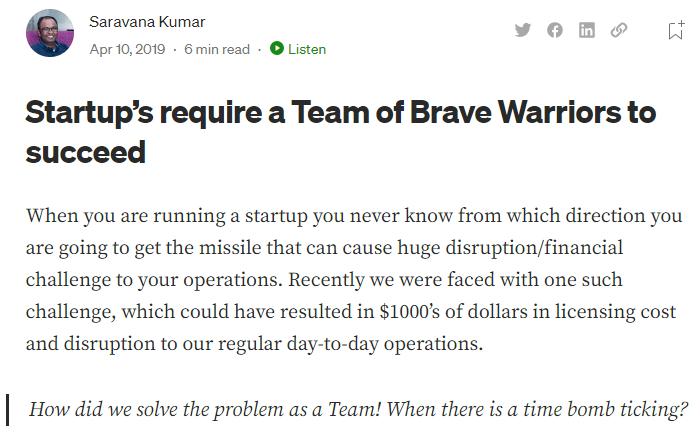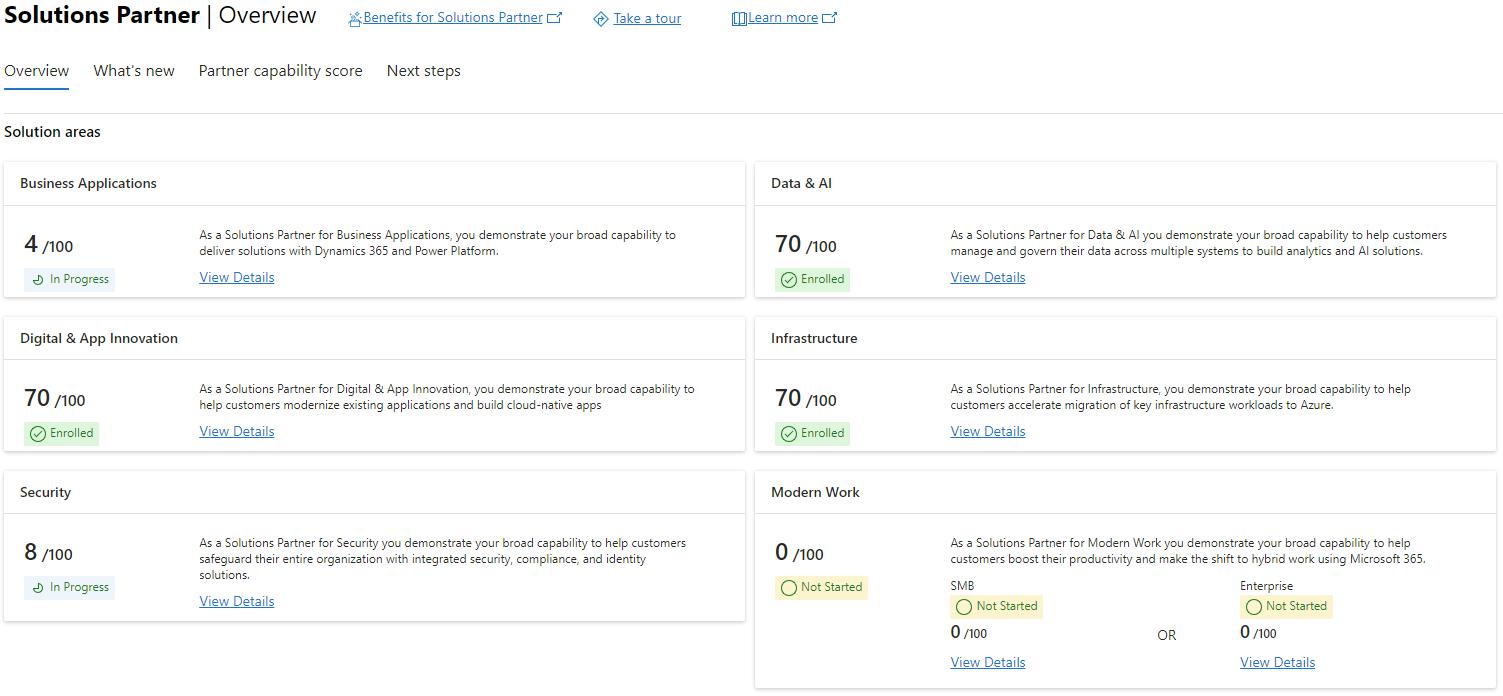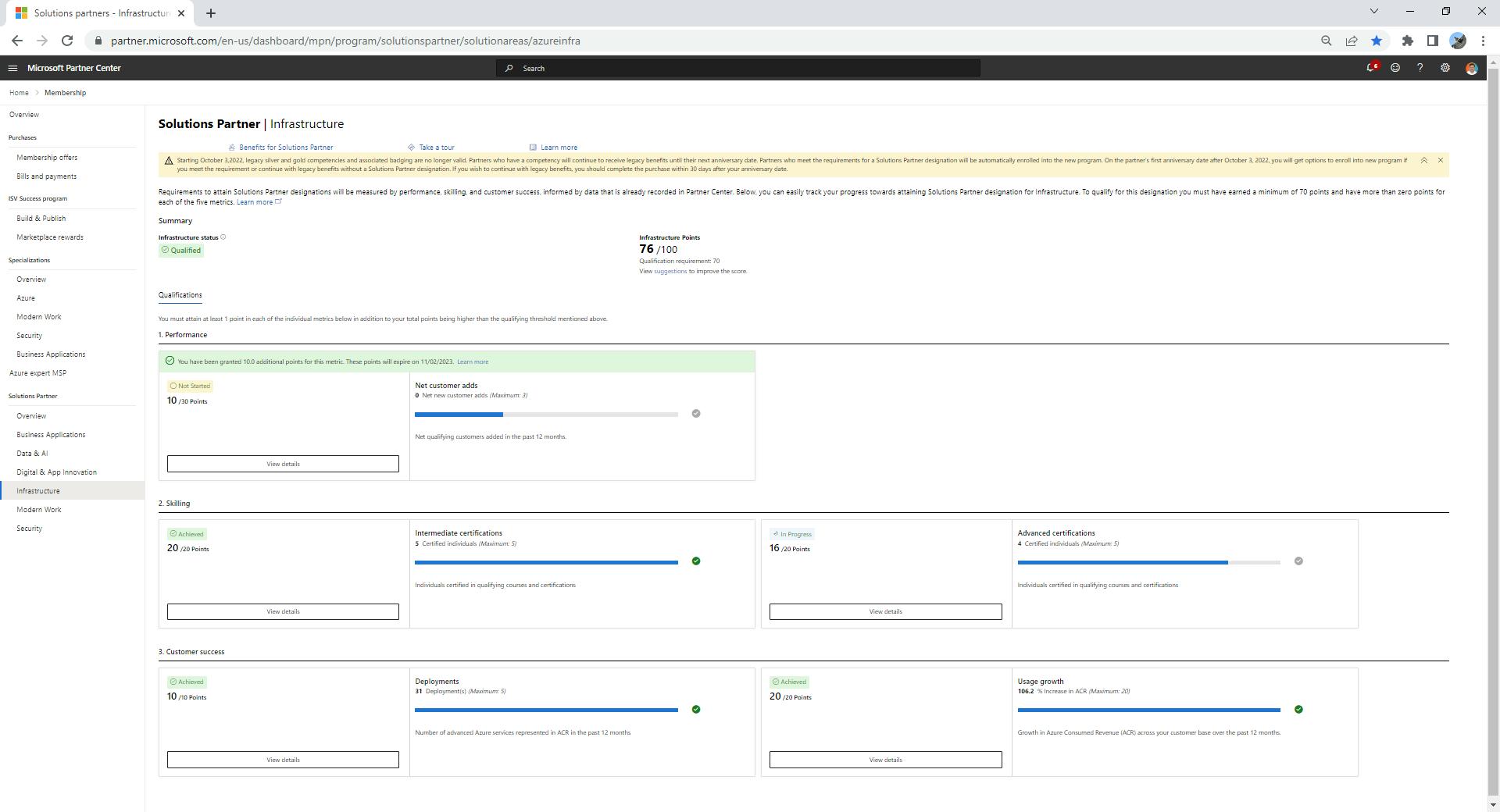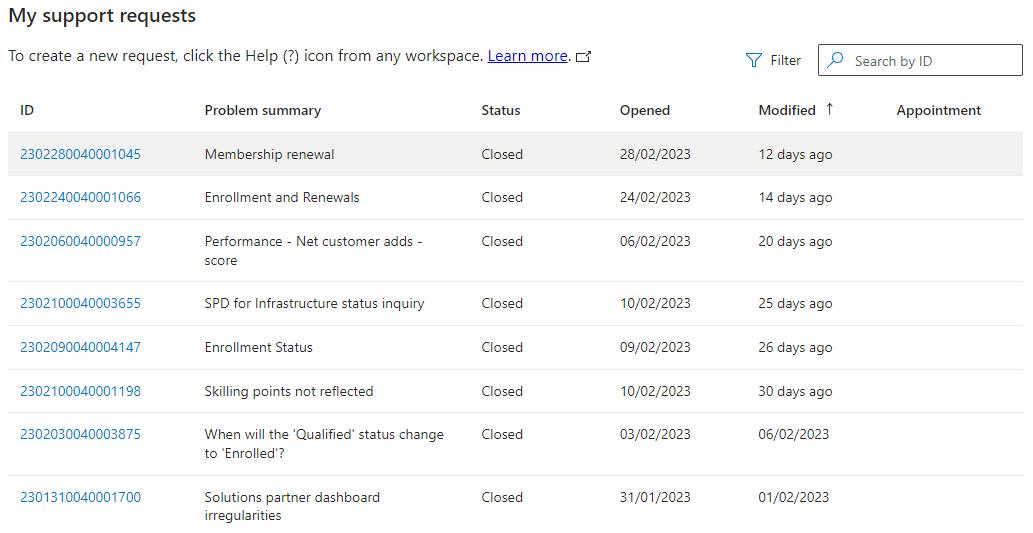Kovai.co earns three solution partner designations in the Microsoft Cloud Partner program

Being met with unexpected situations are part and parcel of running a business. But the challenge is that you never know what that situation is and when you will face it.
This time, we were challenged by a change introduced by Microsoft to its partner program.
Anything like this may also adversely affect your planned activities, impact finance, operational cost, and demand time and resources to understand and address it.
In March 2022, Microsoft announced a significant change in its partner benefits program.
Evolving Microsoft Partner Network programs for partner growth and customer success
Considering their “Cloud first” business approach, Microsoft will be changing the name of their partner program from “Microsoft Partner Network” to the “Microsoft Cloud Partner Program” in October 2022.
All the current partner program benefits were squashed with extension period conditions and replaced with six new cloud partner designations and a few other expertise & specialization recognitions.
The impact
As a company, we are deeply connected to the Microsoft partner ecosystem. We have been a Microsoft partner under various categories since our business started in 2011. All our products are built and hosted on Microsoft technology stack and cloud.

One must agree that it is not easy to achieve these partner recognitions at the start-up stage and continue to maintain the same for years. It demands skilling your team, earning certifications as Microsoft prescribed, and renewing them regularly. An organization must employ, train, certify, and retain a certain number of employees to meet the minimum requirements for the program.
Some of the critical software that we internally use and are heavily dependent on the partnership program are
- Microsoft Azure credits $
- Windows 10/11 Enterprise
- Microsoft 365 E3
- Visual Studio Enterprise
- MS Dynamics 365 – Customer Engagement
- Power BI Pro
Microsoft Gold partnership is critical for us. Every year, licensing rewards amount to about $50,000.
The new Microsoft Cloud Partner Program is for all partners in our ecosystem, whether they build and sell services, software solutions, or devices, and is focused on proficiency in six solution areas aligned with the Microsoft Cloud:
- Data & AI (Azure)
- Infrastructure (Azure)
- Digital & App Innovation (Azure)
- Business Applications
- Modern Work
- Security
The world was just recovering from the pandemic and lockdowns. We were looking at other business priorities and planning, and this news surprised us.
We risk losing the existing benefits if we don’t qualify for the new program by the following renewal timelines.
How did we react?
Meeting with such challenging situations has not been new to us. We were in a similar case when Microsoft announced changes to its ISV partner program a few years ago.

Based on our previous experiences handling such situations, we started to plan to address this. We were back to basics
-
Is there something we can do to prevent this?
In this case, it is not in our control. We are left with no option but to follow what Microsoft dictates. Having been in this ecosystem for a long time and must continue in the same, it is only wise to understand, accept and meet the requirements of change.
-
What are the new requirements?
Any change comes with a new set of requirements. This time the requirements criteria were completely overhauled and are very demanding. The 3 main criteria were,
-
Performance
This pertains to how many new Azure customers an organization could add monthly as compared to previous months in the past year.
-
Skilling
An organization must have a minimum number of certified individuals with varying conditions and specializations. The number is a relatively big ask for any organization.
-
Customer Success
An organization must demonstrate new deployments to its customer base and increase Azure Consumed Revenue, which will be assessed based on TTM (Trailing Twelve Months).
-
-
What are the timelines?
- Do we have enough time to prepare a plan and execute it?
- What are the alternate options provided by Microsoft?
- Are there any extensions for the current program?
- Understanding the above is very important to prepare a plan of action.
-
Assess the impact
- Are there any benefits we will lose? What will be the cost impact in such cases?
- If this software is unavailable, will there be any downtime to your business and operations?
- What are the alternatives? Should we budget or find options for some benefits, we may lose?
-
Availability of resources
- Do we have any resources that meet the new requirements in partial or full?
- What best can we achieve to meet those requirements?
These requirements not only expect the partner to be proficient in the technologies but also persuade sales of Microsoft cloud usage.
Plan and execution
We assessed the impact and the requirements. Out of the three criteria, as an Independent Software Vendor (ISV), we could plan to achieve only the ‘Skilling’ criteria by training and having enough of our employees certified.
Microsoft has provided some temporary bonus points for the ‘Performance’, and we already had some production-level Azure subscriptions for the consumption revenue for the ‘Customer Success’ criteria assessment. But, for an ISV to maintain scores for these two criteria, in the long run, is practically impossible.
Some partners in a business like ours building multi-tenant SaaS solutions on top of the Microsoft cloud stack seem to feel the same challenges.
The Microsoft Cloud Partner Program isn’t suitable for developers of multi-tenant Cloud solutions.
To attain a Solutions Partner designation, you’ll need to earn a minimum of 70 points (with points in each category and subcategory) out of the possible 100 points available.
This means, we must enroll ourselves in the designations before the bonus points expire.
Fortunately, we had enough headcount to pursue this for some designations. We prepared an action plan to train and enable our team to get certified within some timelines. We already had some of our team members certified, which is relevant to meet some of the criteria. We devised further requirements and the necessary budget.
Reaching the targets
As we were preparing to meet the new requirements, the cut-off date of October 2022 approached, and our Gold partnership was turned to legacy by default with existing benefits till the end of the renewal period. In our case, the renewal is due in May 2023, and there was little impact. Had our renewal period been before October 2022, and we missed renewing, we would have lost the entire benefits.
Out of the six solutions designations, we assessed that we could achieve only three as the criteria for other designations were out of reach at this stage.

We contacted our team members with timelines and helped them plan their regular work and preparation for the certification accordingly. Arriving at the timelines and achieving the scores was crucial within the expiry of bonus points for one of the criteria before 11 Feb 2023.

Over a few weeks, we started meeting requirements for the skilling criteria one after the other, and in Feb 2023, we enrolled ourselves in all three designations.

Reaching out to Microsoft support
Though Microsoft was very well prepared regarding the program change details, timelines and related arrangements, there was still much clarity missing at the ground level. For e.g.: The expiry for the granted bonus, whether it was till Feb 2023 or Nov 2023, was not precise, and even at Microsoft support, there was some confusion, so we had to request them to send the correct details, which is final through email.
The partner portal was also evolving, and the data was inconsistent occasionally, making the follow-up of progress unclear—other partners seem to be experiencing similar issues with the portal.
Ongoing score issues for MCPP Partner Solution Designation
We had to reach out to the Microsoft partner support regularly and admit that they are a great team providing excellent support with proactive follow-ups, listening to our queries, and working out on the response.

But, as a program, the communication from the support group and the documentation still have some gaps. For e.g: The evaluation of the scores at the time of our upcoming renewal is still unclear based on the documentation (Solutions Partner – frequently asked questions) and the responses we received from the support teams. We hope Microsoft will address those soon.
Way forward
Out of the six cloud partner designations, we could enroll only for the three designations, and the question of retaining them for a long as an ISV is still unclear.
At this stage, Microsoft recognizes that Solutions Partner designations are primarily for service partners. Still, all partners are welcome to participate in Solutions Partner designations and their broader partner program that offers extra benefits.
Microsoft announced the ISV Success program within the Microsoft Cloud Partner Program at Microsoft Inspire in July 2022. Currently within private preview and moving to public preview later this year, the ISV Success program will be open to all ISV partners. It will help them access benefits to build and publish apps faster, accelerate innovation, and reach more customers.
We have been a Microsoft Gold & Silver Partners for many years and provide SaaS to many customers worldwide. As such, we do not sell Azure licenses to the clients, and they are just added to our global subscription model. Therefore, we cannot get any points in the key criteria.
Microsoft has provided all its partners an option to be a legacy partner for an additional year, hoping they will bring more programs to support existing ISV partners like us.

